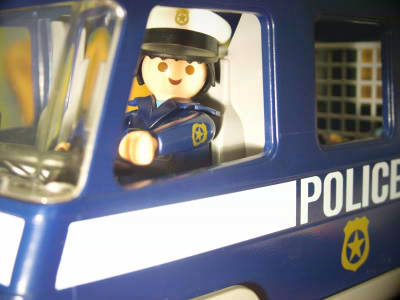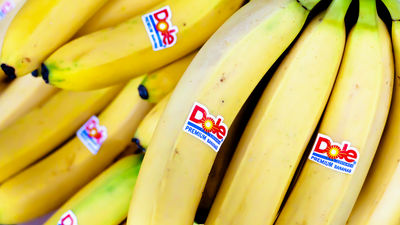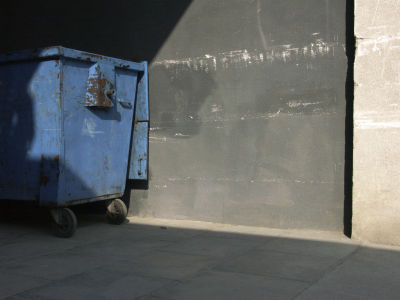What happened when about 38 million yen worth of Japanese-made Kit Kats, worth two containers, went missing during transportation?

KitKat, a chocolate confectionery produced by Nestlé, is sold all over the world, but Japan's KitKat in particular comes in a wide variety of flavors, and is extremely popular overseas as well, making it a standard souvenir. is also known. It has been reported that a ``strategic theft'' incident occurred in which a company that imports and sells Japanese-made sweets was robbed while transporting 55,000 imported Japanese-made Kit Kats and demanded a ransom.
How to Hijack a Quarter of a Million Dollars in Rare Japanese Kit Kats - The New York Times
https://www.nytimes.com/2023/11/08/dining/kit-kats.html
``Bokksu'', run by Danny Thein, is a company that imports and sells Japanese sweets, and the Japanese-made Kit Kat is very popular among American enthusiasts, so it is worth about 250,000 dollars (approximately 37.5 million yen). ), we purchased 55,000 Kit Kats, enough to fill two containers, made in Japan.

The Kit Kats purchased by Mr. Tein arrived safely in California and were taken to a temporary storage facility operated by a company called Japan Crate Acquisition. The rest was scheduled to be transported to a warehouse at Bokksu in New Jersey. However, the Kit Kats never arrived at Bokksu's warehouse as planned.
Mr. Tain had requested a logistics management company called Freight Rate Central for $13,000 (approximately 1.95 million yen) to transport KitKat from the storage facility to the warehouse. Freight Rate Central is a company run by one person, owner Shane Black, and operates a system that recruits jobs online and assigns jobs to drivers who inquire. Masu. The KitKat that Mr. Thein purchased this time was supposed to be carried by a driver named Tristan who belongs to a transportation company called 'HCH Trucking'.

On August 9, 2023, Tristan reportedly contacted Mr. Black via Gmail, saying, ``One of the containers has already been loaded and transported. I will pick up the second container first thing tomorrow morning.'' is. However, even after two weeks, the container that was supposed to have been transported never arrived in New Jersey.
Since KitKat is a chocolate confectionery, if it is left out in midsummer temperatures it will melt and lose its commercial value. Concerned, Mr. Black asked Tristan about the status of the cargo, and he replied, ``The truck broke down in Pennsylvania. The Kit Kats are refrigerated and unharmed, but if the truck cannot be repaired today, they will be taken to a storage facility.'' I have to go back and unload my luggage.'' was the reply.
However, Mr. Black wondered, ``Can a truck that has traveled more than 3,800 km to California suddenly become unable to drive the 650 km distance to New Jersey?'' When he contacted HCH Trucking, he found out that a driver named Tristan It was discovered that the hands did not belong to HCH Trucking. At about the same time that this shocking fact was revealed, Mr. Black received an email from a driver named Tristan confessing, ``I am a fraudster and have no connection with HCH Trucking.'' thing.

A subsequent investigation revealed that one of the imported Japanese KitKat containers was located in a cold storage warehouse in Jurupa Valley, California, and the other was located in a warehouse called Anytime Crossdock in Ontario, California. Of these, Anytime Crossdock charges a storage fee of $3,830 (approximately 580,000 yen) for container luggage that has been left unattended for two weeks. Mr. Black paid $2,000 (approximately 300,000 yen) of that amount, said he would pay the rest at a later date, and again applied for a freight forwarding job online.
However, the next driver, Manny, who works for MVK Transport Inc., was also a fake driver, just like Tristan. According to Mr. Black, Manny lost contact while carrying his luggage and disappeared.
Furthermore, regarding the remaining containers at the Jurupa Valley warehouse, we received a message from the warehouse management company saying that they were in custody of the containers under a contract with a man named 'Harry Senta.' Harry Senta is a real person who runs a trucking business in Ohio, but he told the New York Times, ``This is completely fraudulent and I'm not the one signing the contract. Good luck.'' I hope I can find a KitKat.''

Of course, the legitimate owner of the package is Bokksu, but the warehouse management company replied, ``We cannot hand over the package unless we have proof that Bokksu is the legitimate owner and payment of the storage fee.'' Mr. Black also contacted the Sheriff's Office, but he was unable to get involved due to jurisdictional issues and was unable to resolve the matter.
In the end, Tain terminated his contract with Black, refused to pay him, and filed a report with the Los Angeles County Sheriff's Department under the pretext of insurance. However, Mr. Tain decided to discard the Kit Kat because it was left unattended for more than two weeks and there remained concerns about hygiene. The KitKat in question was still stored in a warehouse at the time of writing, and Bokksu CEO Kevin Sakaras said, ``We no longer have any use for this KitKat, so we will prove proper ownership and pay the storage fee.'' We are happy to give it to anyone who pays.”
According to the New York Times, the reason KitKat did not reach Bokksu is a crime called 'strategic theft' that targets the supply chain, and has been increasing in recent years. The purpose is to steal personal information or blackmail, and if the demands are not met, there is a possibility that the luggage itself will be lost. According to the FBI, this strategic theft causes losses of approximately $30 billion (approximately 4.5 trillion yen) annually, and food items are often targeted.

Bokksu said that he should have felt a sense of crisis that Tristan was communicating with Gmail, and is pursuing the responsibility of Mr. Black, who was communicating with Tristan. However, Black argues that truck drivers don't always use company domain email addresses. It further claimed that the responsibility lies with Japan Crate Acquisition, which handed over the KitKat containers to fake drivers.
However, this Japan Crate Acquisition had been acquired by Bokkus as of June 2023, so the person who gave the KitKat container to the truck of a man named Tristan was the owner of the container, a subsidiary of Bokkus. It can be said that In response to this fact, Mr. Black said, ``I've been doing this job for over 20 years, and I've never come across anything as strange as this. I don't know if it happened,' he commented.
Related Posts:
in Note, Posted by log1i_yk







